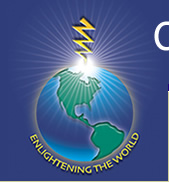
The Primacy, Power, and Possibilities of the Heart
|
 |
|
Bea Mah Holland |
With springtime tantalizingly near, coupled with my yearning for more light and lightness, I was heartened by this headline from the February 26 Wall Street Journal: “The Stress-Busting Smile.” Author Sumathi Reddy states, “Researchers [from the University of California, Irvine] are finding that wearing a smile brings certain benefits, like slowing down the heart and reducing stress...The muscle activity involved in a smile sends a message to the brain signaling safety, which could translate into lower heart rate and stress levels.”
In addition to this research on the value of crinkling the corners of the eyes and mouth, I am aware of the spate of recent writings about our thoughts and feelings, with disparate notions about connecting and reconciling them. In this article I note ideas from Barbara Frederickson, in particular, as well as Jack Kornfield, Parker Palmer, and Steven Pinker, leading me to the hypothesis that our dormant heart capacities, when freed and flourishing, will be a significant contributor to the evolution of our species.
My favorite psychologist, Barbara Frederickson, whose work has received more than 15 consecutive years of research funding from the National Institute of Mental Health, describes love as a “micro-moment of positivity resonance” in her 2012 book Love 2.0: How Our Supreme Emotion Affects Everything We Feel, Think, Do, and Become. In a CNN interview, she defines love as “a biological wave of good feeling and mutual care that rolls through two or more brains and bodies at once.”
Frederickson states, “Love fortifies the connection between your brain and your heart, making you healthier”; she bases that assertion on decades of research showing that people who are more socially connected live longer and healthier lives. She describes one project in which her research team taught people how to create more micro-moments of love in their daily lives; in doing so, they lastingly improved the function of the vagus nerve, a key conduit that connects the brain and the heart. She states, “Small emotional moments can have disproportionately large biological effects.”
Frederickson cites several other studies carried out in the Positive Emotions and Psychophysiology Laboratory at the University of North Carolina, which she directs. These include findings about how negative emotions narrowed people’s perception, reflected by significantly reduced blood flow within the brain, whereas “your doors of perception open wider than usual under positivity’s influence.” Even listening to certain music or taking in inspiring messages opens these doors within us. In Love 2.0, she states, “My collaborators and I have conducted experiments that show how when you feel good, you see beyond your cocoon of self-interest to become more aware of others, more likely to focus on their needs, wants, and concerns, and to see things from their perspective.”
According to the International Research Congress on Integrative Medicine and Health:
"Field experiments have tested the build effect of [Frederickson’s theory of] positive emotions, finding that people can reliably increase their daily diets of positive emotions through the contemplative practice of loving-kindness meditation, and by doing so, they nourish growth in their personal resources. Improved resources, including perceived mindfulness, environmental mastery, self-acceptance, positive relations with others, and physical health, in turn contribute to increases in life satisfaction and reductions in depressive symptom. Moving beyond self-reported resources, a recent field experiment finds that the practice of loving-kindness meditation also increases peopleʼs cardiac vagal tone, a biological marker of health and flexible self-regulatory capacity. These new data deepen the evidence that contemplative practices transform enduring biological functioning in ways that may promote both mental and physical health."
In early 2013, I had the good fortune to attend a weeklong meditation retreat, “The Wise and Loving Heart: Meditation for Freedom and Compassion Everywhere,” facilitated by Jack Kornfield, a leader in introducing Buddhist practice and psychology to the West. It was here that I learned about Metta, an ancient practice of explicitly putting deeply felt good wishes in our hearts. We recite the Metta lines first for ourselves, then for those we love, for neutral others, for those we dislike or worse, and finally for all living beings. In his book The Wise Heart (2009), Kornfield proposes: “Love, in the sense of Metta, used by the Buddha, is a universal non-discriminating feeling of caring and connectedness,” and that saying Metta as a part of one's daily meditation leads to feelings that “I am larger than I thought. I did not know I held so much goodness!” I adopted my good friend Penny’s Metta as my own, paying attention to safety, happiness, peace, strength, health, joy, self-care, self-love, and acceptance. While clearly a Metta novice, I know that I am developing a wiser and more loving heart.
I have participated in several Courage to Lead retreats which were created by Parker Palmer. I am taken with the description of “heart” in his book Healing the Heart of Democracy (2011):
"Heart comes from the Latin cor and points not merely to our emotions but to the core of the self, that center place where all of our ways of knowing converge—intellectual, emotional, sensory, intuitive, imaginative, experiential, relational, and bodily, among others. The heart is where we integrate what we know in our minds with what we know in our bones, the place where our knowledge can become more fully human."
Palmer’s description is compatible with some dictionary definitions of heart. Webster’s, for instance, includes phrases such as “the seat of emotion [the moral side of human nature in contradistinction to the intellectual]; personality [the seat of the will or inclination, disposition, or mental tendency]; attributes [the inmost thoughts and feelings, consciousness, or conscience]; and various humane feelings such as love, devotion, sympathy, energy, spirit, resolution, courage.” In a similar vein, my online dictionary defines heart as “the center of a person's thoughts and emotions…mood or feeling...courage or enthusiasm…the central or innermost part…the vital part or essence.”
Harvard’s Steven Pinker, in his 2010 book The Better Angels of Our Nature: Why Violence Has Declined, proposes that today is the most peaceful time in all of human existence, and could be “the most significant and least appreciated development in the history of our species.” With 800 pages of research and analysis, he makes the point that our species is becoming more self-reflective and capable of feeling more sympathy for others. Graced with rational minds and the ability to communicate verbally, we may be in the process of genetic evolution and societal maturation.
I sometimes feel the heaviness of our society’s injustices and my own powerlessness. Yet I am strengthened by the thinking of people such as those whose work I have referenced above. While I would like to imagine a world in which all of us humans are using our hearts brilliantly—whereby as a first step each of us deeply loves and accepts ourselves without judging—this sometimes seems like a fantasy. Yet the day may come when we are also truly appreciating and accepting our immediate family members and our dearest friends without judging, perhaps even radiating this caring out to our world family—those who are more distant geographically, emotionally, racially, culturally, and in world views. I find it exciting that we have some trustworthy, evidence-based tools, so that we can begin with ourselves and go on to ultimately extend heartfelt good wishes to everyone on the planet.
![]()
Center for Empowered Leadership ®
Email: info@cfel.org
Phone: 1.609.259.7911
